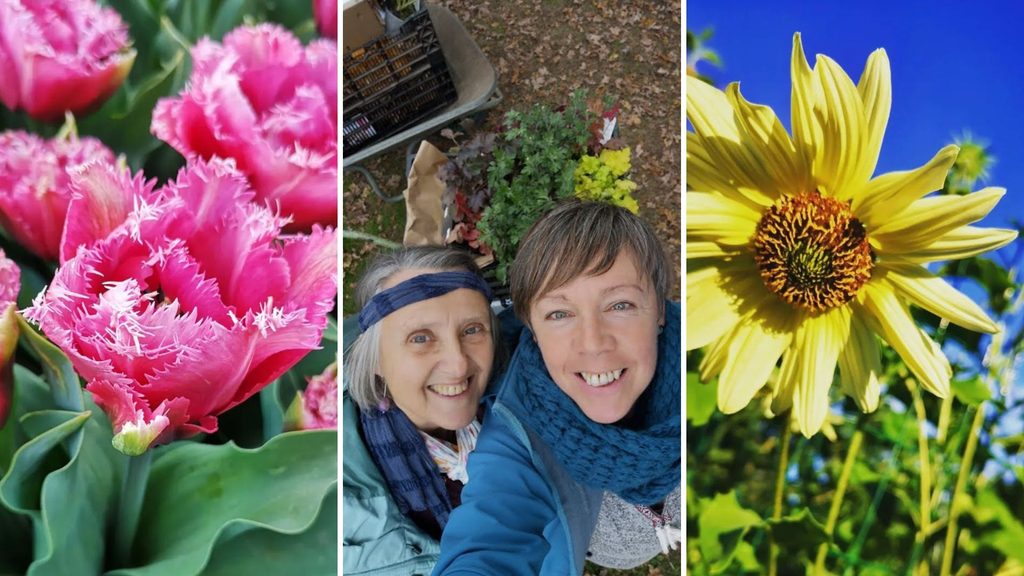From helping the homeless and freebies galore to beautiful Belgian forests, here's The Brussels Times' weekly round-up of positive news stories from across Belgium.
Today's positive pick
A picking garden (Zorgboerderij Rimpeling vzw) in Nieuwrode (Holsbeek) is launching a new initiative by gifting people with dementia bouquets of edible flowers.
"Often people with dementia are not given flowers in their rooms, for fear they will eat them and then get poisoned. That's why we are putting together bouquets of edible flowers," Katja Van Goethem of Rimpeling picking garden told VRT.
Katja Van Goehem and Greet Herkes started Rimpeling back in May 2021, having realised that being outdoors had a "healing effect" on people. With many helping hands, they "dared to dream big" and transformed an 8-acre meadow in Nieuwrode into a colourful 'picking and experiencing' garden, maintained by volunteers and people with disabilities.
The volunteers work together on Wednesday and Saturday afternoons. "On the other days of the week, tailor-made care and guidance is provided to young and elderly people who need extra support," providing a "wonderful way to unwind, meet, support each other and discover talents," according to the non-profit's website.
After the picking garden was opened, Kunekune piglets and chickens of 14 different breeds soon came onto the scene. "There was no doubt that flower picking and laying hens would do the trick: after all, that makes everyone happy!"

Credit: Rimpeling VZW / The Brussels Times
"The purpose of our picking garden is to put together bouquets, which we then sell to the care sector," Van Goehem stated. "Every two weeks, people with dementia or care home residents can choose a bouquet from us."
This new bouquet of flowers is not just any bouquet, though: it comprises solely edible flowers. "Greet and I have been working with people with dementia for years and we also provide training on this," Van Goehem told VRT.
Brightening up the room
"Unfortunately, we saw time and again that there were hardly any flowers to be seen in the living rooms of people with dementia. There is of course a good reason for this, as some of them start eating the flowers, which can be dangerous. You cannot expect a carer to always check whether the flowers are poisonous or not," she continued.
"This is why there are usually no flowers in the rooms of people with dementia. So we came up with the idea of growing edible and non-toxic flowers" to brighten up their rooms with bouquets regardless.
The edible bouquets are also always delivered with a vase to the residential care homes. "In this way, we want to ensure that the staff in the residential care homes bear as little a burden as possible, and don't have to look for a vase."
Through a solidarity fund, Van Goehem and Herkes hope to raise more money to offer groups the opportunity to experience a relaxing and sensory-filled afternoon in the picking garden. Although their resources are stretched, they "feel a need and are happy to offer that little bit extra that is so needed in our society."
To find out more about Zorgboerderij Rimpeling vzw's work, see here.
Other stories from this week to make you smile:
1. Free museum entry on 21-23 July on anniversary of Philippe's reign
Access to the permanent collections of Belgium's federal museums will be free from Friday 21 to Sunday 23 July in honour of the tenth anniversary of the reign of King Philippe. Read more here.
2. The inspiring beauty of the Tervuren Arboretum (in pictures)
Located a mere half-hour car ride away from the centre of Brussels, the Tervuren Arboretum is one of the most exquisite forests in Europe. Read more here.
3. Call for projects to end homelessness launched in Wallonia
Presented last April by the regional government, the €20-million programme will enable the acquisition or construction of real estate, land or modular housing solutions for homeless people. Read more here.
4. Free STIB travel given to 20,000 people from August
The measure will allow around 20,000 workers in the non-profit sector to be reimbursed 100% for their trips on the STIB network. The new reductions will begin from the start of the next school year in August. Read more here.

